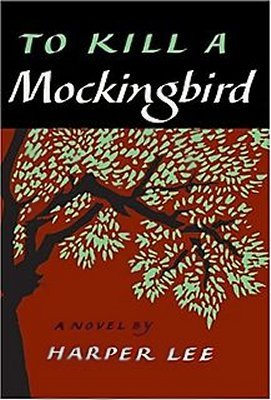
Has Britain’s department of education killed the mockingbird?
News broke this weekend that the UK’s Education Secretary Michael Gove was “banning” modern American classics from being taught to British students in an effort to make British reading lists more British — and the story has caused a storm of fury across the UK. According to the Sunday Times, the Department of Education is changing its syllabus guidelines for the state’s standardized test, the General Certificate of Secondary Education (more commonly known as the GCSE); the changes would preclude teachers from instructing on popular American works such as Harper Lee’s To Kill a Mockingbird and John Steinbeck’s Of Mice and Men — two works that have long been popular in British schools.
The Sunday Times also reported that Gove’s personal preferences were part of the decision. “Of Mice and Men, which Michael Gove really dislikes, will not be included,” Paul Dodd, who works for one of the biggest UK exam boards, told the paper. “It was studied by 90% of teenagers taking English literature GCSE in the past. Michael Gove said that was a really disappointing statistic.” He also added, “In the new syllabus 70-80% of the books are from the English canon.”
The news prompted immediate backlash against the decision, and Gove in particular. “To Kill A Mockingbird” became a trending topic on Twitter in the UK on Monday, while academics and literature lovers decried the decision. The Guardian called the move “parochial and regressive.” A Change.org petition was launched and it quickly gained tens of thousands of signatures.
Yet Gove has written his own op-ed to defend himself and the Department of Education’s decision against what he dubs “the culture warriors.” Writing in the in the Daily Telegraph, Gove says he doesn’t dislike Steinbeck and he has “not banned anything. Nor has anyone else.” He notes that under the new guidelines, the GCSE exams will require that British students study at least one Shakespeare play, at least on 19th century novel, a selection of poetry from 1789 onwards and a work of fiction or drama from the British Isles from 1914 onwards.
But he also adds that the guidelines represent the “minimum core that had to be covered”; teachers were free to “introduce children to the brilliant writing of Lee, Steinbeck and [Arthur] Miller today as they were yesterday and nothing this government is doing will change that in the future.”
Of course, as the Change.org petition, written by Mary Stevens, notes: “With all the other demands on us, it will be hard for any teacher to teach more than these set texts and we simply don’t believe these choices are the right ones for all students. We love literature and want to share that love. This syllabus risks building resentment and dislike of our literary heritage.”
For now, however, the change in guidelines seems to have merely boosted the popularity of American lit across the pond. William Heinemann, the imprint that publishes To Kill A Mockingbird in the UK, tweeted their thanks on Monday:
TO KILL A MOCKINGBIRD up to number 9 on Amazon! Dear Mr Gove, please dis another one of our books.
— Jason Arthur (@JasonArthur01) May 26, 2014
More Must-Reads From TIME
- The 100 Most Influential People of 2024
- How Far Trump Would Go
- Why Maternity Care Is Underpaid
- Scenes From Pro-Palestinian Encampments Across U.S. Universities
- Saving Seconds Is Better Than Hours
- Why Your Breakfast Should Start with a Vegetable
- Welcome to the Golden Age of Ryan Gosling
- Want Weekly Recs on What to Watch, Read, and More? Sign Up for Worth Your Time
Contact us at letters@time.com